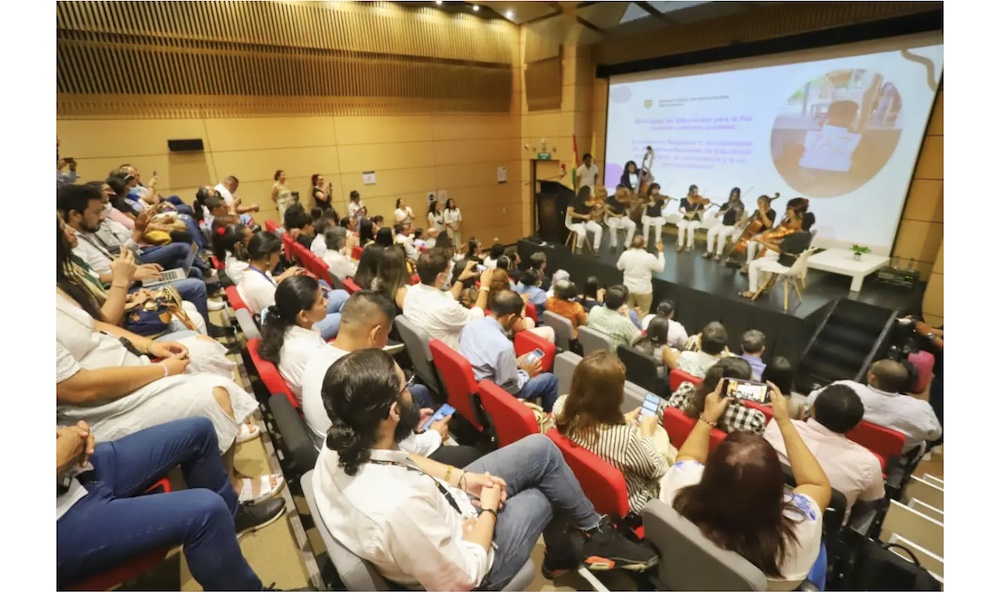… EDUCATION FOR PEACE …
An article from the Global Campaign for Peace Education
With more than 150 attendees from different regions of the country, the Education for Peace dialogues took place in Cartagena for two days. Teachers, teaching directors, officials from the secretariats of education, students, representatives of higher education institutions, and social organizations from different parts of the country participated in the dialogues.

The scenario served for the socialization of recommendations for education for peace, school coexistence and non-stigmatization. In different conversations and workshops, the importance of explicitly having socio-emotional, citizen and reconciliation education in undergraduate degrees was discussed, so that teachers leave with tools that allow them to present solutions and initiatives to communities.
(Continued in right column)
Where is peace education taking place?
What is happening in Colombia, Is peace possible?
(Continued from left column)
The importance of forming a culture of peace was expressed, with support networks, for children and adolescents, taking into account the social context to which they belong, to promote the concept of peace in their territory, recognizing the needs of students. and their participation, to transform contexts. Likewise, generate strategies based on art and culture that allow emotions to be managed for the peaceful resolution of conflicts and for reconciliation.
On the other hand, the need was identified to strengthen the training of teaching directors and teachers to lead pedagogy strategies and construction of learning strategies and networks around peace and violence mitigation in order to guarantee the rights of children. and young people; as well as supporting pedagogical projects focused on restorative justice, peace, reconciliation, human rights and coexistence, which must be transversal.
Another point that was addressed referred to the understanding of the processes of self-education, respect for the knowledge of the communities and the promotion of research in the classroom. In this way, peace must be promoted by teachers from all areas and the commitment also of the secretaries of education so that they can generate actions.
The regional meeting on education for peace was organized by the Ministry of National Education and had the support of the Secretary of Education of Cartagena, the Japan Cooperation Agency JICA, EducaPaz and the Norwegian Council for Refugees.